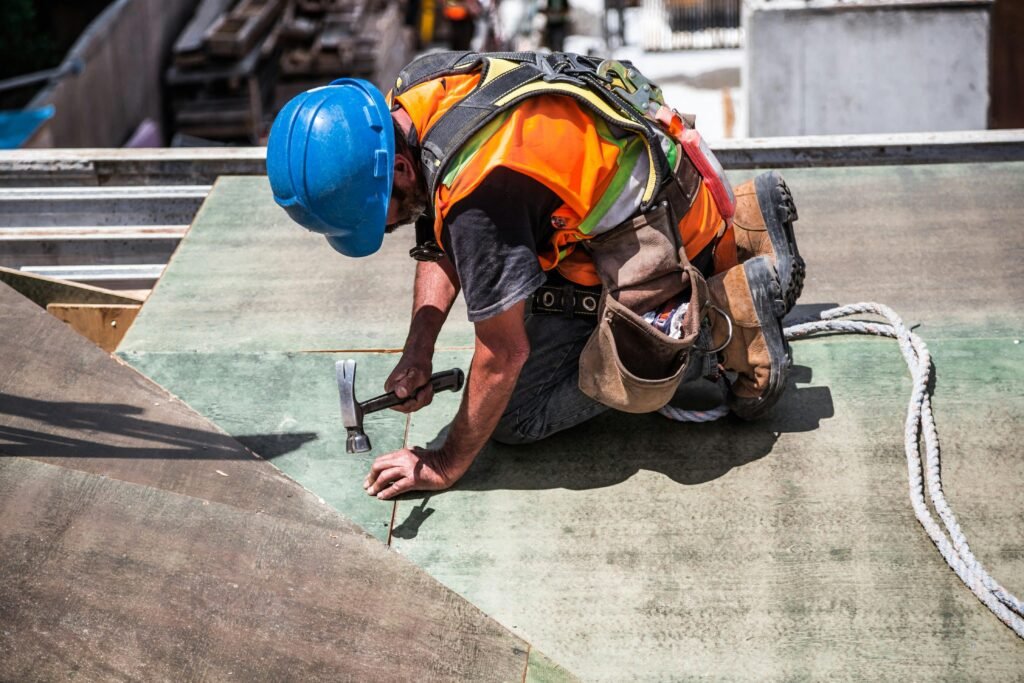Are you a construction project manager looking to improve your communication skills? Just like a well-oiled machine, effective communication strategies can help you smoothly navigate the challenges of your job. Clear and concise communication is the foundation of success, ensuring everyone is on the same page. By actively listening and providing feedback, you can foster understanding and collaboration among your team. Additionally, harnessing the power of written communication allows you to convey important information accurately and efficiently. Embracing technology tools can streamline communication processes, saving you time and effort. Lastly, building strong relationships and trust with your team and stakeholders creates a positive and productive work environment. With these strategies in your toolbox, you’ll be able to communicate with ease and lead your construction projects to success.
Key Takeaways
- Clear and concise language is crucial for effective communication in construction project management.
- Active listening and providing constructive feedback are essential skills for project managers.
- Written communication should be concise, error-free, and prioritize clarity and precision.
- Utilizing technology can enhance communication, especially for geographically dispersed stakeholders, but it should complement face-to-face communication.

Clear and Concise Communication
How can you ensure clear and concise communication as a construction project manager? Effective verbal communication and nonverbal communication skills are key to achieving this goal. As a construction project manager, it is crucial to communicate your ideas, expectations, and instructions clearly and effectively to your team members, clients, and stakeholders. Verbal communication involves using clear and concise language, being mindful of your tone and volume, and using active listening skills to ensure understanding. Additionally, nonverbal communication skills such as body language, facial expressions, and gestures can help convey your message more effectively. Maintaining eye contact, using open and welcoming body language, and being aware of your own nonverbal cues can enhance your communication and establish trust and rapport with others. By mastering these effective verbal and nonverbal communication techniques, you can avoid misunderstandings, improve productivity, and foster positive relationships within your construction project team. Transitioning into the subsequent section about ‘active listening and feedback’, it is equally important to actively listen to others and provide constructive feedback to ensure effective communication in construction projects.
Active Listening and Feedback
To ensure effective communication as a construction project manager, actively listen to others and provide constructive feedback. Active listening involves fully engaging with the speaker, paying attention to their words, and understanding their perspective. It requires giving your undivided attention, maintaining eye contact, and avoiding distractions. By actively listening, you can better understand the needs and concerns of your team members, clients, and stakeholders, which in turn allows you to respond more effectively.
Additionally, providing constructive feedback is crucial for fostering growth and improvement within your team. Constructive criticism should be specific, objective, and focused on the behavior or performance, rather than the individual. It is essential to provide feedback in a respectful and supportive manner, highlighting areas for improvement while also acknowledging strengths. This approach encourages open communication, trust, and collaboration, enabling your team to learn from their mistakes and make necessary adjustments.
Effective Written Communication
An effective approach for construction project managers is to utilize clear and concise written communication. This is crucial for conveying important information, instructions, and updates to team members, clients, and stakeholders. To ensure effective written communication, project managers should adhere to email etiquette guidelines. This includes using a professional tone, keeping messages concise and to the point, and proofreading for grammar and spelling errors before hitting the send button.
Additionally, project managers should master the skill of writing effective memos. Memos are commonly used in construction projects to communicate important announcements, project updates, or changes in procedures. When writing memos, it is important to include a clear subject line, provide all necessary details, and use a professional and concise writing style.
In both emails and memos, project managers should prioritize clarity and precision. Use bullet points or numbered lists to organize information and make it easier for recipients to understand. Avoid jargon and technical language that may confuse or alienate readers. Finally, always proofread your written communication to ensure accuracy and clarity.
Utilizing Technology for Communication
To enhance communication in construction projects, you can leverage technology to streamline and expedite the process. Collaborative platforms and virtual meetings are two key technologies that can greatly improve communication among project teams.
Collaborative platforms, such as project management software, allow project managers to centralize project information and ensure that all team members have access to the latest updates. These platforms enable real-time collaboration, where team members can communicate, share files, and track progress all in one place. This eliminates the need for lengthy email chains and reduces the risk of miscommunication or information being lost.
Virtual meetings, on the other hand, provide an efficient way to bring together project stakeholders who may be geographically dispersed. With video conferencing tools, project managers can conduct face-to-face meetings without the need for travel. This saves time and resources while still allowing for effective communication and decision-making.
By utilizing these technologies, you can improve communication efficiency, reduce delays, and increase productivity. However, it is important to remember that technology should complement, not replace, face-to-face communication and personal interaction. Building strong relationships and trust among team members is crucial for successful project delivery.
In the next section, we will discuss strategies for building strong relationships and trust in construction projects.
Building Strong Relationships and Trust
Continue building strong relationships and trust by fostering open and transparent communication channels among project teams. Building rapport and fostering collaboration are crucial for successful construction project management. Here are some strategies to help you strengthen relationships and build trust within your team:
- Establish regular face-to-face meetings: Regular team meetings provide an opportunity for everyone to connect, share updates, and address any concerns or issues. It helps in developing personal connections and fostering a sense of camaraderie.
- Encourage active listening: Encouraging team members to actively listen to one another promotes understanding and empathy. It shows that their opinions and ideas are valued, contributing to a positive team atmosphere.
- Foster a culture of transparency: Openly share project goals, progress, and challenges with the team. Transparency builds trust by ensuring everyone is on the same page and has access to relevant information.
- Promote collaboration and teamwork: Encourage team members to collaborate, share knowledge, and work together towards a common goal. Foster an environment where everyone feels comfortable contributing their ideas and expertise.
- Recognize and appreciate achievements: Celebrate milestones and acknowledge individual and team achievements. Recognizing and appreciating the efforts of team members helps create a positive work environment and strengthens relationships.

Frequently Asked Questions
How Can Construction Project Managers Ensure Clear and Concise Communication With Subcontractors and Vendors?
To ensure clear and concise communication with subcontractors and vendors, construction project managers should utilize effective communication strategies. This includes establishing regular meetings, using clear and concise language, and providing timely feedback.
What Are Some Effective Strategies for Providing Feedback to Team Members During Construction Projects?
When providing feedback to team members during construction projects, use effective communication strategies such as constructive criticism and feedback techniques. This will help improve their performance and ensure successful project completion.
Are There Any Specific Guidelines or Templates That Can Help Construction Project Managers Improve Their Written Communication?
There are guidelines and templates that can help you improve your written communication as a construction project manager. These resources provide structure and clarity, making your messages more effective and professional.
How Can Construction Project Managers Leverage Technology to Enhance Communication With Stakeholders and Team Members?
Leveraging technology can enhance communication for construction project managers. Use tools like project management software and video conferencing to streamline communication with stakeholders and team members, improving efficiency and collaboration.
What Are Some Key Steps for Building Strong Relationships and Trust With Clients and Team Members in the Construction Industry?
To build strong relationships with clients and foster team trust in the construction industry, focus on open and honest communication, actively listen to their needs, provide regular updates, and follow through on commitments.
Conclusion
Cramer Rao Construction Ltd. understands the importance of clear communication in successful project management. Our team prioritizes transparency, ensuring all stakeholders stay informed throughout the construction process. Proven strategies like regular updates, detailed progress reports, and consistent collaboration help prevent misunderstandings and keep projects on schedule. Open communication channels allow us to address issues quickly, maintaining efficiency from start to finish. Contact us today for expertly managed construction projects where effective communication ensures smooth execution and timely completion.